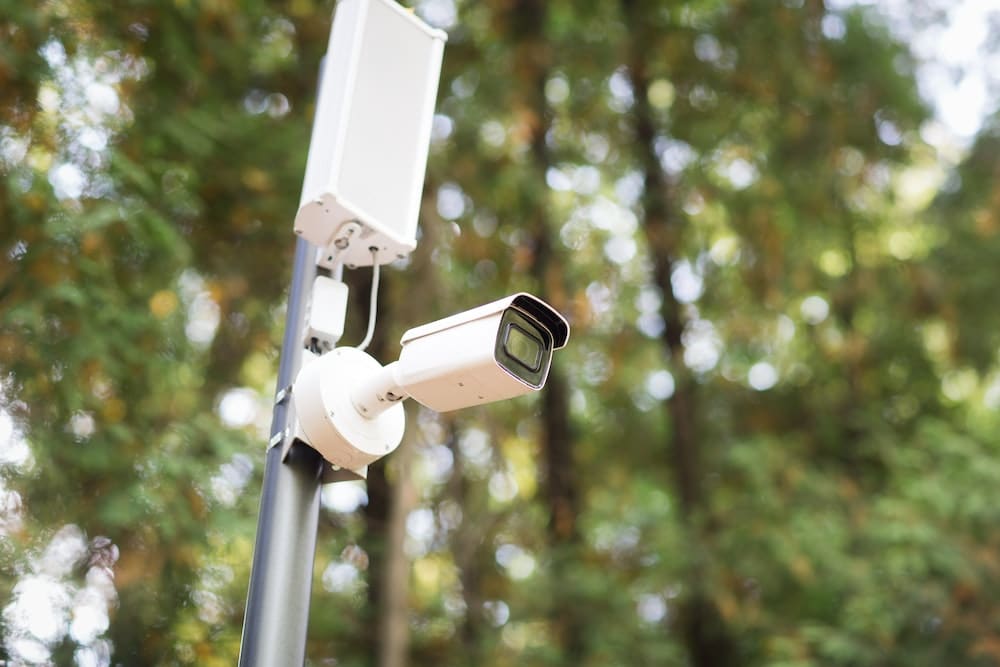How can UK companies legally handle employee surveillance without violating privacy laws?

In the era of digital technology and advanced security systems, tracking an employee's activities is no longer a challenging task. However, it's not just about monitoring an employee's performance. It's about maintaining a balance between the employer's need for control and the employee's right to privacy. In the UK, the law provides certain guidelines to help businesses maintain this balance. Today, we'll dive into these guidelines to understand how UK companies can lawfully handle employee surveillance without conflicting with privacy laws.
An Overview of UK Privacy Laws
The advent of digital technology has paved the way for advanced surveillance mechanisms. While these technologies are handy in monitoring employee performance and ensuring workplace safety, they may also infringe on the privacy of employees. In the UK, the law on privacy is based on the Human Rights Act 1998, the Data Protection Act 2018, and the General Data Protection Regulation (GDPR).
Cela peut vous intéresser : How can UK businesses legally navigate the complexities of trademark registration in multiple countries?
The Human Rights Act 1998 outlines the right to respect for private and family life. It discourages the unnecessary interference of employers in the personal life of employees unless there is a legitimate reason.
The Data Protection Act 2018 and the GDPR focus on the protection of personal data. They regulate the way employers collect, use and store employee data. They also give employees the right to access and control their data.
A lire aussi : How to legally conduct an environmental impact assessment for a new construction project in the UK?
Legitimate Monitoring: Where Employers Can Draw the Line?
As an employer, you need to be clear on when it is legal to monitor your employees and when it is not. Yes, you have a legitimate business interest in monitoring your employees' performance, attendance, and even internet usage during work hours. However, monitoring should not intrude on employees' personal lives or violate their privacy rights.
To ensure your monitoring efforts are legitimate, always have a clear and justified reason. For instance, you might monitor email traffic to avoid potential data breaches, or use video surveillance to ensure the safety of your employees and premises. Remember, however, that continuous video surveillance might be perceived as an invasion of privacy, unless there is a compelling reason.
Informing Employees about Surveillance
A key requirement under UK privacy laws is that any monitoring activity should be transparent. This means you need to inform your employees about the surveillance measures in place, the reasons for their existence, and their rights in relation to these measures.
The most effective way to do this is by having a clear and comprehensive workplace monitoring policy. The policy should explain what is being monitored, how the data is being collected and used, and the steps the company is taking to ensure data protection. It should also outline the consequences of any misconduct revealed through monitoring.
Ensuring Data Protection
While it is legal for you to collect certain information about your employees in the course of surveillance, such data should be treated with utmost caution. UK privacy laws require employers to ensure the protection of employee data.
This means you should have a secure system for storing and processing personal data. You should limit access to this data to only those who need it for legitimate business purposes. Furthermore, you should not retain the data for longer than necessary.
Dealing with Personal Emails and Messages
The line between work and personal life is often blurred, especially with the rise of flexible working arrangements. As such, it might be tempting to monitor personal emails or messages sent via work devices. Yet, this is a highly sensitive area under UK privacy laws.
Unless there is suspected wrongdoing, you should avoid monitoring personal communications. In cases where it is necessary to investigate, it is advisable to seek legal advice first to ensure compliance with privacy laws.
In conclusion, employee surveillance is a complex field that requires careful navigation. While it serves a legitimate business interest, it should not infringe on employee privacy. By understanding and adhering to UK privacy laws, you can achieve an effective and lawful surveillance system that respects the rights of your workers.
The Use of Monitoring Software and the Legal Implications
In an effort to enhance productivity and protect company assets, employers often resort to the use of monitoring software. These digital tools can provide employers with comprehensive insights into an employee's computer activities, including their use of software, internet browsing history, social media usage, emails, and even keystrokes. However, the widespread use of such software raises numerous legal and ethical questions.
First and foremost, employment law in the UK stipulates that employee consent must be obtained prior to the implementation of monitoring software. Transparency is key and employees should be clearly informed about the extent, methods and purpose of the monitoring. This is typically accomplished through a detailed workplace monitoring policy, as previously discussed.
Aside from obtaining consent, employers must ensure that the use of monitoring software does not infringe upon an employee's right to privacy as guaranteed by the Human Rights Act. While this law does not explicitly forbid the use of monitoring software, it does mandate that any monitoring conducted must be proportionate and necessary for a legitimate purpose.
In applying these principles, employers must consider whether less intrusive methods are available to achieve their objectives. For example, instead of monitoring every keystroke made by an employee, it may be more appropriate to periodically review their internet usage or productivity metrics.
Moreover, any data gathered through monitoring software falls under the purview of data protection laws. This means employers must handle such data in strict compliance with the GDPR and the Data Protection Act 2018.
Dealing with Potential Criminal Activity: Employee Tracking and the Law
Unfortunately, there may be instances when employers suspect their employees of criminal activity. In such situations, employers may be tempted to ramp up their surveillance or use more intrusive monitoring tools. However, doing so without proper legal guidance could lead to serious violations of privacy laws.
When suspicious activity is detected, employers should not act unilaterally. It is crucial to involve law enforcement agencies and seek legal advice. This ensures that any further surveillance or investigation conducted is within the bounds of the law.
UK law permits a higher degree of monitoring in cases of suspected criminal activity. However, there are still limits. For instance, employers cannot intercept private communications without a warrant, even if they suspect that an employee is using company resources to carry out criminal activities.
Employers also need to carefully consider the evidence at hand before embarking on heightened surveillance. A baseless suspicion or minor misconduct should not be used as a pretext for invasive monitoring. If the suspected activity does not amount to a criminal offence, it might be more appropriate to address the issue through internal disciplinary procedures.
In terms of employee tracking, it’s crucial to remember that while it can be a useful tool in cases of suspected wrongdoing, it must also be used in a compliant manner. Use of GPS tracking devices or software should only be done if employees are aware of it, and even then only within reasonable limits.
Conclusion: Striking a Balance Between Employee Monitoring and Privacy
Navigating the world of employee surveillance can be a daunting task for UK businesses. The legal landscape is complex and failure to comply with privacy and data protection laws can lead to hefty fines and reputational damage.
However, businesses should not be deterred from implementing effective employee monitoring systems. When done correctly, such systems can play a crucial role in boosting productivity, ensuring workplace safety, and protecting company assets.
The key to lawful employee monitoring lies in striking a balance. Businesses must respect their employees' right to privacy while pursuing their legitimate interests. This requires transparency, proportionality, and a firm commitment to data protection.
By keeping these principles in mind, UK businesses can create a monitoring framework that not only complies with the law, but also fosters trust and respect among employees. After all, a workplace that respects individual privacy is likely to be a happier and more productive one.
